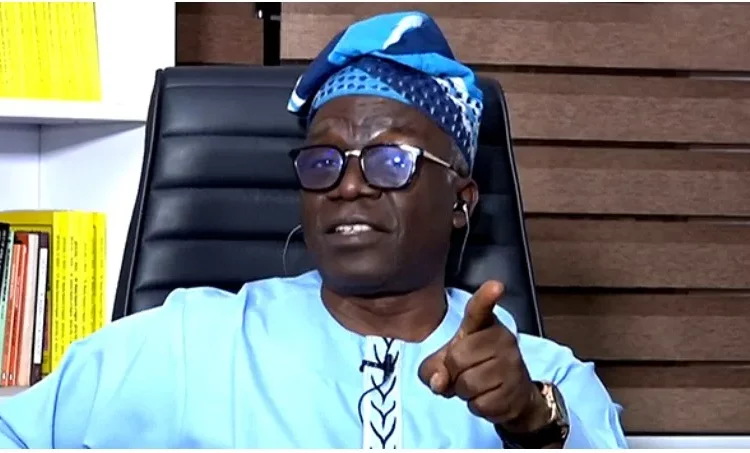Human rights lawyer, Femi Falana (SAN), has strongly criticised the proposal to increase the salaries of political office holders, describing it as “highly insensitive” in the light of Nigeria’s prevailing economic crisis.
Speaking on Channels Television’s breakfast programme, ‘Sunrise Daily’, on Tuesday, Falana accused the Revenue Mobilisation Allocation and Fiscal Commission (RMAFC) of neglecting the plight of ordinary Nigerians.
LP Faults RMAFC’s Defence Of Politicians’ Pay Rise
“The RMAFC seems to have overlooked the harsh living conditions in the country and the daily hardships endured by ordinary people,” he said.
Citing recent figures from the National Bureau of Statistics (NBS), which indicate that over 133 million Nigerians live in multidimensional poverty, Falana questioned the rationale for prioritising salary hikes for politicians.
“At this point, proposing higher wages for political office holders is not only tone-deaf but also unfair to the majority battling severe economic pressure,” he added.
The RMAFC had announced plans to review the remuneration of political, judicial, and legislative officers, which it described as “inadequate and outdated.” At a press briefing in Abuja on August 18, 2025, the Commission’s Chairman, Mohammed Shehu, disclosed that the President currently earns ₦1.5 million monthly, while ministers receive less than ₦1 million, figures that have remained unchanged since 2008.
Shehu argued that the salaries were no longer realistic given the responsibilities of the offices, noting that heads of agencies earn significantly more.
However, the Nigeria Labour Congress (NLC) has also opposed the plan, insisting that politicians already enjoy numerous hidden perks and allowances, while inequality in the country continues to deepen.
Shehu further clarified that the review does not cover civil servants’ salaries. He added that the commission has also commenced a review of the country’s revenue-sharing formula, which has remained unchanged since 1992.
Currently, the federal government takes 52.68%, states receive 26.72%, while local governments get 20.60%. Past attempts to alter the formula have failed due to political resistance, but Shehu said the new review is intended to reflect current socio-economic realities and reduce overdependence on the federal government.






